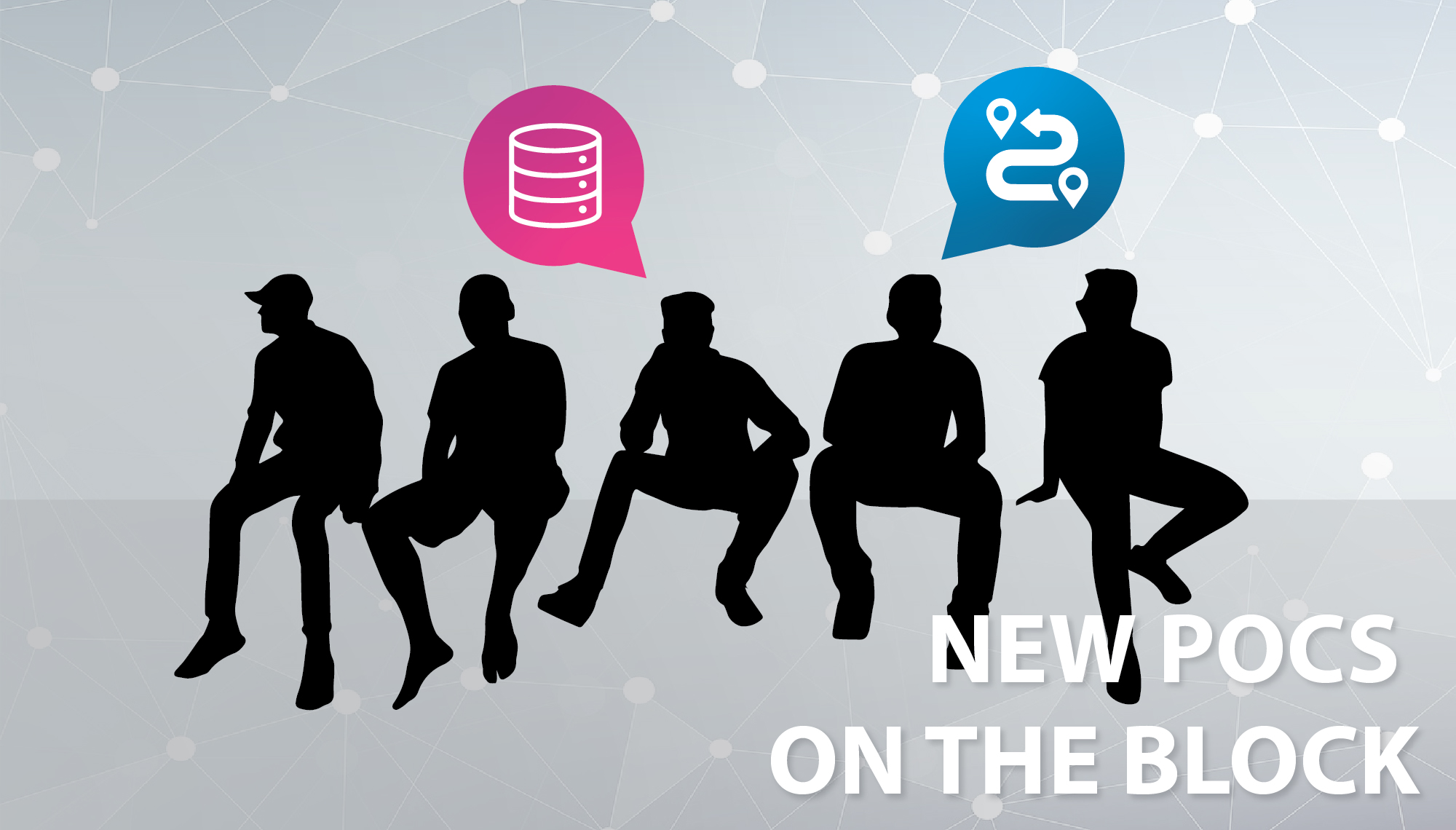
New POCs on the Block
You’ve Got the Right Stuff
Many of you may already know that we have a suggestion process in place for our community members to submit their thoughts and ideas for how we can better serve you. We always take the time to review these suggestions, and sometimes implement your ideas!
We recently received two separate suggestions from different ARIN community members asking us to add two new types of optional Points of Contact (POCs) to our public WHOIS database - one for routing purposes and one for DNS purposes. We thought this was a great idea, so we took this feedback and created these two new POCs.
The Routing POC will be responsible for Internet Routing Registry (IRR) maintenance and Resource Public Key Infrastructure (RPKI Certification), and the DNS POC will be responsible for updating reverse DNS delegations (in-addr arpa and ip6.arpa) and DNSSEC (Delegation Signer Records or DS Records). The addition of these two new POC types were part of the initial development of ARIN’s new IRR. You can find discussion points regarding the IRR update by Richard Jimmerson and John Sweeting at ARIN 43 in Barbados.
POC by POC
You may ask, why do we need all of these different types of POC functions, and what does each do? The need for different types of POC Records really boils down to security and POC responsibilities/functions. POC records are standalone objects that detail a person or role and provide their contact information. The POC function is defined by how it is added to an Organization Identifier (Org ID) or to Internet number resources (IP addresses and Autonomous System Numbers) registered under the Org ID.
Admin POC - The Administrative (Admin) POC is a mandatory POC for an Org ID. This POC has full administrative rights over the Org ID and its corresponding Internet number resources. The Admin POC is permitted to manage and update the Org ID; manage, update and request resources; request transfers; as well as manage reverse delegations, DNSSEC, RPKI, and many other functions. There can be only one Admin POC for an Org ID.
Tech POC - The Technical POC (Tech POC) is also a mandatory POC for an Org ID and has the same administrative rights as the Admin POC. An Org ID can have multiple Tech POCs.
Abuse POC - The Abuse POC is a mandatory POC for an Org ID and acts as a contact for reporting and resolution of network abuse issues. Multiple Abuse POCs may be specified per organization. This type of POC is not permitted to make any database changes.
NOC POC - The Network Operation Center (NOC) POC is an optional POC and serves as a contact for network operation issues. There can be multiple NOC POCs for an Org ID.
Resource Tech POC – The Resource Tech POC is an optional POC for an Org ID and has authority over specified Internet number resources. The Resource Tech POC can change the attributes of a resource, such as the resource name and the public comments displayed in ARIN’s Whois database, and can also specify nameservers or DS Records. An Internet number resource can have multiple Resources Tech POCs.
Resource Abuse POC - The Resource Abuse POC is an optional POC that acts as a contact for the reporting and resolution of network abuse issues regarding a specific Internet number resource. An Internet number resource can have multiple Resource Abuse POCs.
Resource NOC POC - The Resource NOC POC is an optional POC that serves as a contact for network operation issues for specific Internet number resources. An Internet number resource can have multiple Resource NOC POCs.
Hangin’ Tough
So, what will the new POC functions do, and how are they helpful?
Routing POC - The Routing POC is an optional POC and will have the ability to create, edit, and delete routing objects within ARIN’s IRR and maintain and implement RPKI. There can be multiple Routing POCs for an Org ID.
DNS POC - The DNS POC is an optional POC and will manage and update Reverse DNS Delegations and Domain Name Systems Security. There can be multiple DNS POCs for an Org ID.
The addition of the Routing and DNS POCs will allow organizations to further detail and delegate authority for specific POC functions to the appropriate people within their organizations. This enhances their security and enables network operators to have more specified access to the individuals responsible for these functions.
Your suggestions continue to improve the community’s ARIN Online experience, and are most welcomed. Submit a suggestion by logging into ARIN Online and going to the top navigation bar under “Policy & Participation”, from the drop-down menu you will see “Community Interaction”, then select “Consultations & Suggestions” and your suggestion may shape ARIN Online in the near future.
Recent blogs categorized under: Tips
GET THE LATEST!
Sign up to receive the latest news about ARIN and the most pressing issues facing the Internet community.
SIGN ME UP →Blog Categories
Updates • Public Policy • RPKI • ARIN Bits • Fellowship Program • Data Accuracy • Security • Tips • Caribbean • Grant Program • IPv6 • Business Case for IPv6 • Internet Governance • Elections • Outreach • Training • IPv4 • Customer Feedback • IRR


